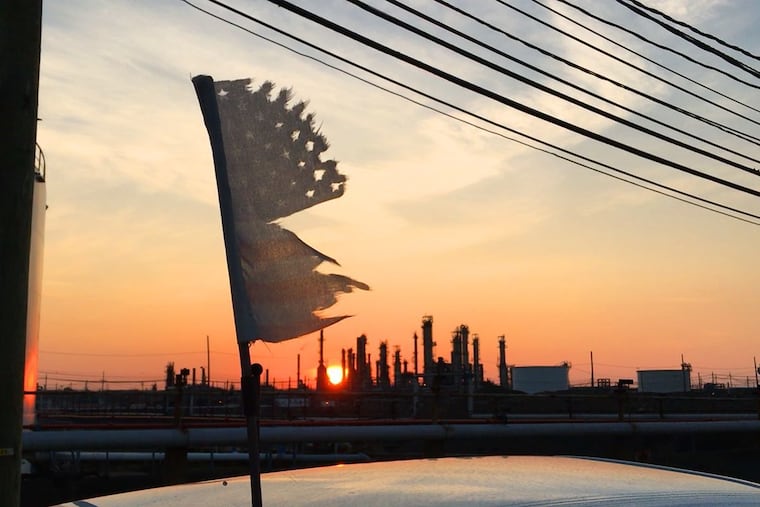In these BlackStar films, workers become the heroes in all their complexity
In a program focused on labor, these films center on workers who are not often in the spotlight — nail technicians, cleaners, caregivers — unless they’re being exploited or otherwise done wrong.

Midnight Oil begins with a panorama of a place that’s become cemented in the mythology of present-day Philadelphia: the Philadelphia Energy Solutions refinery.
“Wow, look at this place,” a man’s voice says, awestruck, as the camera shakily pans across the massive facility’s pipes and towers. “I never imagined … like, how did I end up here? You know? I’m not good with my hands. Always wanted to be an artist. But now I’m here, after 15 years.”
There’s a wistfulness to this admission, a nod to an entire life’s worth of dreams stowed away. The kind of dreams you set aside for the realities of the world: Your family needs to eat. You need to eat. You’re just trying to survive.
But as the film unfolds, we learn that his dream has been realized. The documentary’s narrator is Bilal Motley, a former refinery worker and the one behind the camera.
It’s these two competing threads that run through a series of shorts focused on labor being screened virtually at this year’s BlackStar Film Festival. The films, part of a shorts program called The Grind that will screen Sunday, center on workers who are not often in the spotlight — nail technicians, cleaners, caregivers — unless they’re being exploited or otherwise done wrong.
In those mainstream stories, forces act upon them. They are the victims, lacking any agency in a cruel world set up to see them fail. In these films, the workers are the heroes. Not the kind of heroes that popular media would manufacture in a rags-to-riches story or a story of overcoming the odds. And certainly not the kind of worker heroes that marketers have sought to brand during the pandemic.
No, these workers are the heroes in that they are the stars, the leading men and women of these films. They narrate the story. They shape it. They’re artists in their own right, in a way that society often chooses to overlook. At the same time, they’re flawed, desperate, dreaming of something else yet working all the same.
“That is how we survive,” says an Irula snake catcher of his work in the documentary Nilā — a stark contrast to how the film depicts his work as a near-mystical and dangerous art form. But in these films, workers are afforded that complexity.
In See You Next Time, filmmaker Crystal Kayiza honors the relationship between a Chinese nail technician in Brooklyn and her Black client with close shots of the nail artist at work, massaging her client’s hands and carefully gluing tiny jewels onto her nails. Scenes in the salon are cut with shots of Black and Asian models, where the camera’s graceful pan and the classical music make it seem like they’re dancing ballet.
Kayiza, whose film also screened at Sundance this year, has said she hoped to showcase what she called the artistic collaboration between nail techs and their clients and to take “time to celebrate the people in our communities that take care of us.” And though the film provides a stage for the intimacy and the artistry between manicurist and client, Kayiza also wanted to honor another reality: “At the end of the day, it’s a job,” she said in a filmmaker panel set to screen after The Grind.
» READ MORE: 3 Asian American artists talk labor: The emotional, the invisible, the inconsequential
By showing labor in all its nuances — its beauty, the people it connects us to, but also its mundanity and its dangers, which the manicurist’s pre-COVID-19 face mask suggests, Kayiza pays respect to workers whose labor is not often depicted as meaningful or important.
Motley similarly complicates a narrative that divided Philadelphians over the last year: the fate of the South Philly refinery, the site of a debilitating explosion last summer. In first-person shots where he’s directly talking to the camera on his phone, he takes us through his internal struggle. The refinery is the place that allowed him to comfortably raise a family and that employed many people he cares about, but what has it done to the community around it? And what has the racism he experienced as a Black man at the refinery done to him?
By now, the story of what happened after the refinery exploded, how it revealed the pain and trauma that many Philadelphians had been living with for years, has been written over and over again. But watching Midnight Oil, which garnered Motley death threats after it was first screened, feels like seeing the refinery saga with new eyes. It’s a story that only a worker could tell.